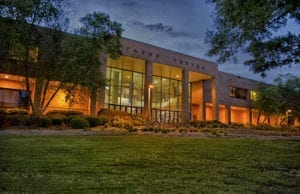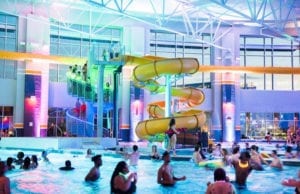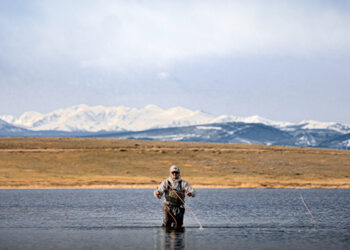When it comes to making money in your campus rec center, you might think of selling memberships and access to fitness classes, but what about the multiple avenues for revenue aquatics has to offer?
Options include swim lessons, certification courses and renting out facilities for events. Since each campus is different, it’s important to figure out the most popular offerings in your area and expound on them to generate the most revenue.
One factor that can determine revenue is location. “Geographically, we are one of the very few aquatics centers in our region, so we have very few competitors,” said Craig Gosnell, the aquatics coordinator at the University of Tennessee Chattanooga (UTC). “We try to fill what people want and what people are looking for by providing that with high quality.”
What Gosnell has found people want are pool parties and facility rentals. To accommodate the high demand, he explained they launch pool and facility rentals three times a year, and each season is different. “This coming fall has 56 pool parties; however, summer had 73 and spring had 66,” he said. “Our record time of selling out pool parties was about 72 hours. In the past few years it has never taken longer than three to four weeks to sell out.”

Because students come first, Gosnell is sure to only schedule events during times the pool is not open to students. The same rule applies for rentals at the University of Southern Mississippi (USM). “Our students always come first, so we have certain times the pool is available to rent,” said Brent Holifield, the aquatics and outdoor adventures coordinator at USM. “We only have pool parties on Saturdays and Sundays, and our swim teams come during hours the pool would be closed to students.”
Similar to location is the size of your aquatics department. This can alter your ability to offer more rentals, therefore resulting in more revenue. “Our rentals are all shared use,” said Alecia Stegenga, the aquatics coordinator at the University of Illinois at Chicago (UIC). “Since we have a unique pool — three lap lanes and a large leisure area with a lazy river, vortex, bubble bench — it’s easy for people to share the space for whatever they want to do.”
Stegenga elaborated if someone wants a private rental, it has to be after hours, resulting in an increased cost and more money for the aquatics department. Rentals are not the main source of revenue for UIC like they are at UTC. Instead, Stegenga states certifications are key because their biggest revenue stream is their swim lesson program, offering group and private lessons to almost 300 people every week.
“All my instructors have an American Red Cross water safety instructor certification,” said Stegenga. “This helps sell our program because we can tell interested patrons our staff has gone through a 25-hour certification course to teach lessons.”
Holifield also finds quality training for staff is key to increase revenue. “I recommend you recruit quality staff and have consistent and quality training,” he said. “The staff training always sets the tone for the rest of the year and can ensure high-quality lessons.”
Other than facility rentals and swim lessons, offering certification courses at your aquatics center can also be a large source of revenue. Gosnell is not only the coordinator of aquatics at UTC; he is also the lifeguard instructor trainer, water safety instructor trainer, and certified pool and spa operator instructor.
“I would say most of the employees at the local YMCA have come here for their lifeguard instructor certifications, but usually at least a third or quarter of my certification courses are filled with my own students,” said Gosnell. “I’m generating revenue by offering those courses, but I’m also certifying my own staff, which in turn allows me to push swim lessons and to push lifeguard and lifeguard review courses.”
Stegenga is also the water safety instructor and lifeguard instructor trainer at her facility, allowing similar revenue benefits. “This provides opportunities for students to take classes and to become instructors in classes as well,” she explained. “The revenue from the classes pays the instructors’ wages and pays for the equipment needed for each course.”
With the revenue that aquatics provides for campus rec departments, you can invest in staff through training and improved facilities, or like they do at UTC, you can also use this revenue to give back to the students. “Building revenue is extremely important because it allows my program and campus rec to do more things, but I think it is always important to remember we are not a for-profit business — we are geared to serve primarily our students,” said Gosnell.
One of the ways UTC gives back to students is through free aquatics events called Soundwaves.

Gosnell hosts several seasonally-themed Soundwave events for students, including Feel the Chill and All Hallows Eve. “We turn off all the pool lights and have a DJ, a loud sound system, and free swag, pizza and drinks. It really gets packed out,” said Gosnell. “The money that allows me to pay for the DJ and lighting equipment comes from the revenue we generate.”
Gosnell further elaborated while generating revenue is important, he doesn’t like the idea of getting caught up in trying to make money as opposed to being able to change people’s lives through what the aquatics department can do. “When I’m at my best, and when we as recreational professionals are at our best in providing services and things that can positively impact students, revenue will come with that,” he said.










